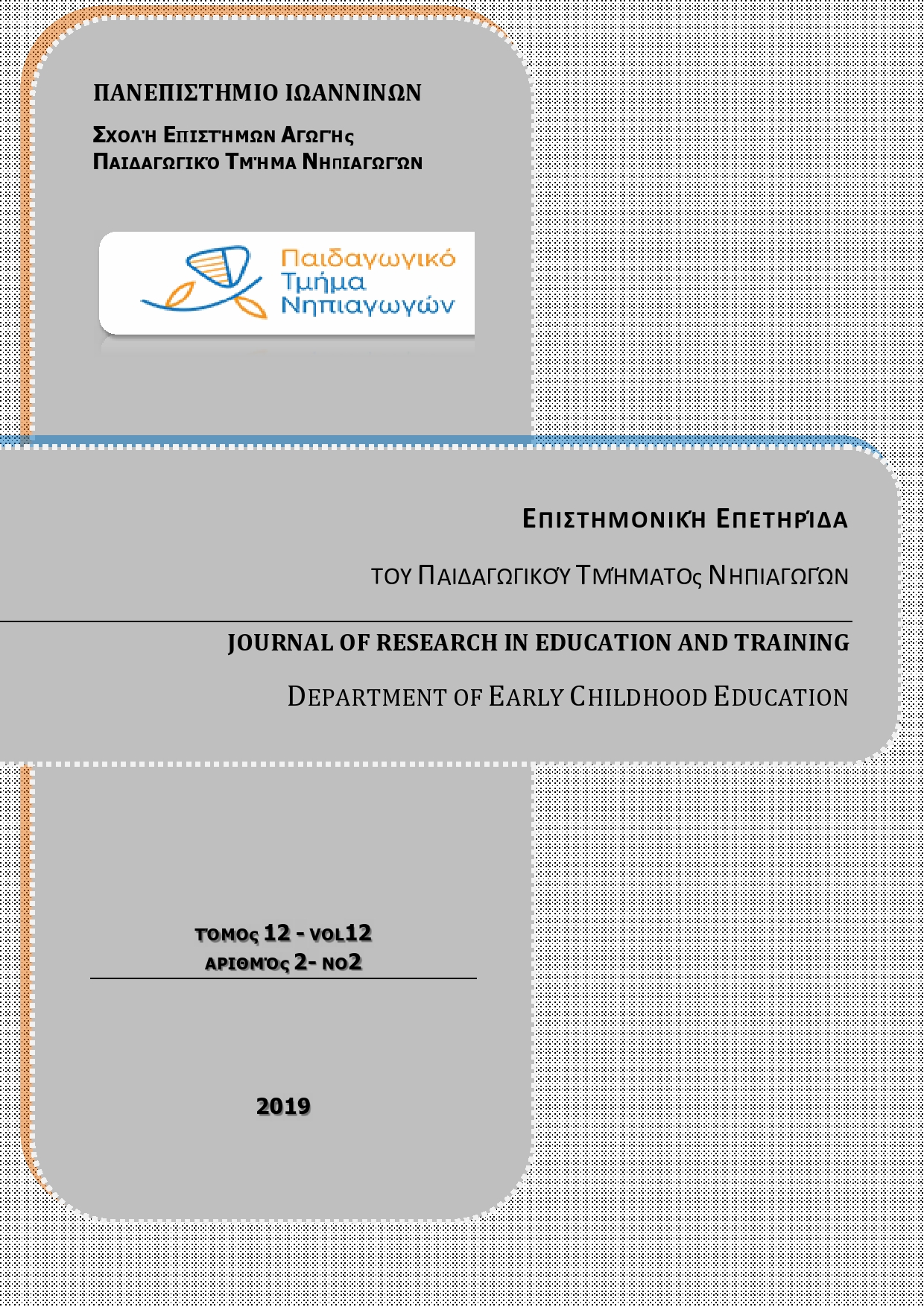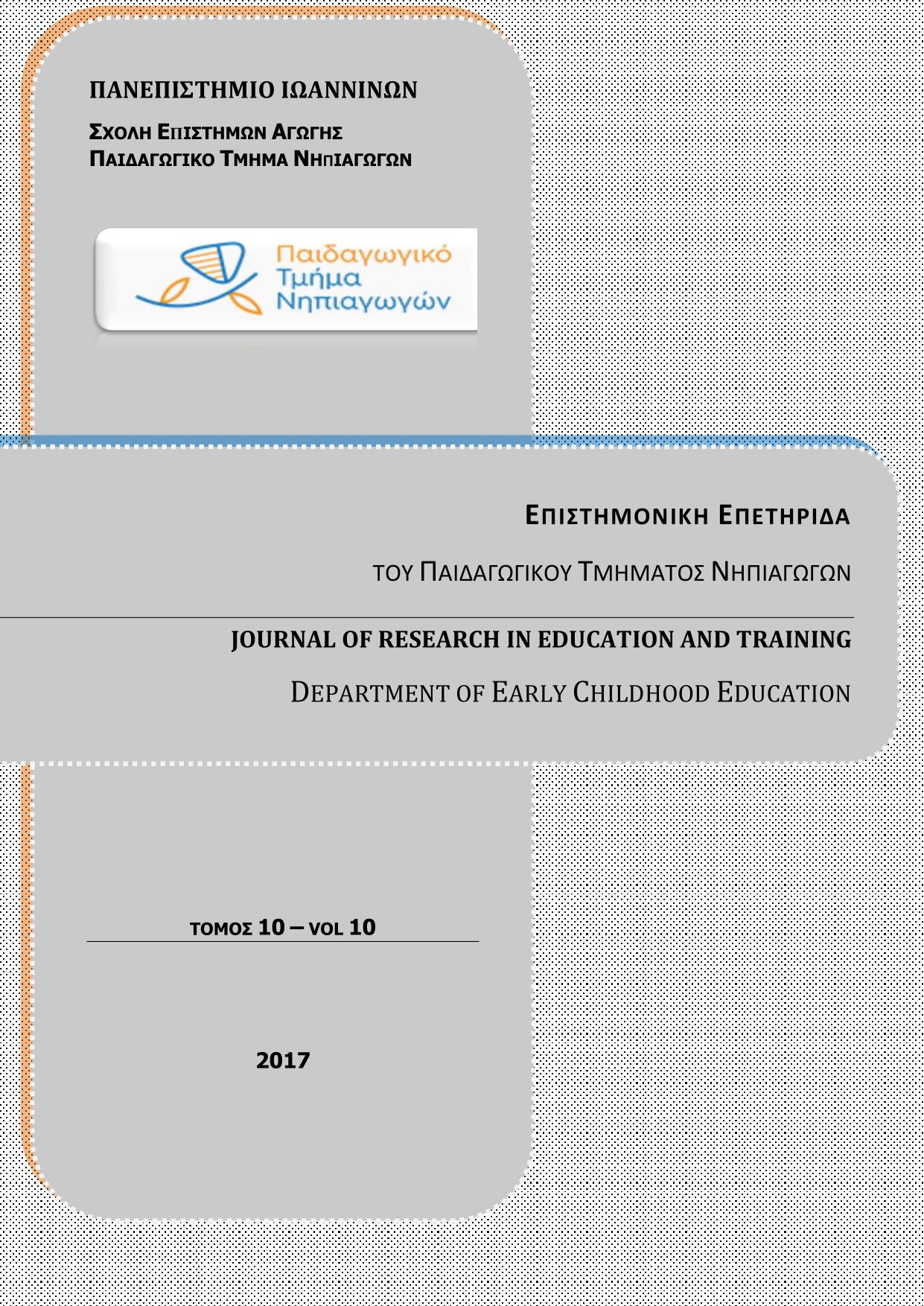Το νευροψυχολογικό προφίλ και η ενίσχυση της αναγνωστικής κατανόησης των μαθητών με δυσλεξία μέσω γνωστικών και μεταγνωστικών στρατηγικών αποτελεσματικές σχολικές παρεμβάσεις στην ηλικία των 11 έως και 12 ετών

Περίληψη
Λεπτομέρειες άρθρου
- Πώς να δημιουργήσετε Αναφορές
-
Μουτσινάς Γ., Ντζιαβίδα Α., & Μαχιά Α. (2019). Το νευροψυχολογικό προφίλ και η ενίσχυση της αναγνωστικής κατανόησης των μαθητών με δυσλεξία μέσω γνωστικών και μεταγνωστικών στρατηγικών: αποτελεσματικές σχολικές παρεμβάσεις στην ηλικία των 11 έως και 12 ετών. Επιστημονική Επετηρίδα Παιδαγωγικού Τμήματος Νηπιαγωγών Πανεπιστημίου Ιωαννίνων, 12(2), 26–116. https://doi.org/10.12681/jret.19000
- Τεύχος
- Τόμ. 12 Αρ. 2 (2019)
- Ενότητα
- Άρθρα

Αυτή η εργασία είναι αδειοδοτημένη υπό το CC Αναφορά Δημιουργού – Μη Εμπορική Χρήση – Παρόμοια Διανομή 4.0.
Οι συγγραφείς που δημοσιεύουν σε αυτό το περιοδικό συμφωνούν στους παρακάτω όρους :
1. Οι συγγραφείς διατηρούν τα δικαιώματα πνευματικής ιδιοκτησίας επί των άρθρων τους, χορηγώντας στο περιοδικό το δικαίωμα της πρώτης δημοσίευσης. Άρθρα που δημοσιεύονται στο περιοδικό «Επιστημονική Επετηρίδα του Παιδαγωγικού Τμήματος Νηπιαγωγών της Σχολής Επιστημών Αγωγής του Πανεπιστημίου Ιωαννίνων» διατίθενται με άδεια Creative Commons 4.0, σύμφωνα με την οποία μπορούν να χρησιμοποιούνται ελεύθερα, με αναφορά στο/στη συγγραφέα και στην πρώτη δημοσίευση για μη κερδοσκοπικούς σκοπούς.
2. Οι συγγραφείς μπορούν να συνάπτουν ξεχωριστές, πρόσθετες συμβάσεις και συμφωνίες για την μη αποκλειστική διανομή του δημοσιευμένου στο περιοδικό έργου (π.χ. κατάθεση σε ένα ιδρυματικό αποθετήριο ή δημοσίευση σε ένα βιβλίο), με την αναγνώριση της πρώτης δημοσίευσης σε αυτό περιοδικό.
3. Στους συγγραφείς επιτρέπεται να δημοσιεύσουν την εργασία τους online (κατά προτίμηση σε ιδρυματικά αποθετήρια ή στην ιστοσελίδα τους) πριν και κατά τη διάρκεια της διαδικασίας υποβολής, καθώς αυτό μπορεί να οδηγήσει σε παραγωγικές ανταλλαγές, όπως επίσης και παλαιότερες και ευρύτερες παραπομπές δημοσιευμένων εργασιών (The Effect of Open Access)



